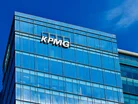KPMG: Unlocking the Scope 3 Opportunity in APAC

KPMG's Unlocking the Scope 3 Opportunity in Asia Pacific Report offers a comprehensive exploration of the progress and challenges faced by companies in the region as they seek to measure, report and reduce their Scope 3 emissions.
These emissions, which are indirect and stem from a company’s supply chain, often account for a significant 70-90% of a company’s total carbon footprint.
The report sheds light on the increasing scrutiny surrounding Scope 3 emissions and their vital role in achieving climate and decarbonisation objectives.
However, the task of accurately measuring and reporting these emissions is daunting, as they are largely outside a company’s direct control.
The report is grounded in research led by Professor Neale O'Connor of La Trobe University Business School and the Pacific Basin Economic Council, analysing the ESG reports of 338 companies listed on six major stock exchanges in Asia Pacific, across eight key industries.
One significant insight from the report is the crucial role that Asia Pacific companies play in providing accurate global supply chain emissions data, given their vast geographical presence.
The move away from spend-based carbon measurement towards supplier- and product-based strategies highlights the importance of maintaining strong supplier relationships.
This shift presents an opportunity for companies to drive sustainable business practices throughout their supply chains by ensuring thorough and precise reporting on Scope 3 emissions.
For companies across Asia Pacific, transforming internal operating models is essential to accurately capture and report supply chain emissions. Moreover, the adoption of new supply chain strategies and modifications to external business models are necessary to reduce emissions and make progress towards Net Zero targets.
As Michael Walsh, CEO and Executive Director of Pacific Basin, states, "The majority of Scope 3 emissions are international in origin, so Asia Pacific companies play a significant role in providing accurate global supply chain emissions data due to their widespread geographic presence.
"The Scope 3 emissions of large US companies are often linked to manufacturing operations in regions like China, India, North and Southeast Asia.
"This indicates that more resources and expertise will be required in this area. An emphasis on corporate governance, executive incentives, and partnerships with NGOs while sharing responsibility for reporting will likely increase in the coming decades."
The importance of collaboration
The report also highlights the importance of corporate governance, executive incentives and collaborations with NGOs in improving Scope 3 emissions reporting.
They also note that the responsibility for reporting is likely to become more widely shared in the coming decades. It concludes that enhanced emissions measurement not only drives strategic value but also supports a shift from superficial greenwashing to genuine sustainability efforts.
It also emphasises the critical role of Scope 3 reporting in meeting regional sustainability goals and fostering deeper collaboration with suppliers and customers.
- 62% of companies in Asia Pacific have disclosed their Scope 3 emissions data to some extent.
- The minerals and mining sector leads in this area, with 70% of companies reporting their emissions, followed by the automotive sector at 65%.
- Japan is noted for outperforming other countries in the region, particularly in reporting upstream emissions.
- Additionally, 62% of companies in Asia Pacific are obtaining external assurance on their emissions calculations, with South Korea leading at an impressive 94%.
- However, only 42% of companies are actively monitoring the environmental impacts of their supply chain, highlighting a gap between reporting and actual monitoring.
Echoing this, Dong-Seok Derek Lee, Head of ESG in Asia Pacific at KPMG in South Korea, remarks, "Reporting on Scope 3 emissions presents an opportunity for companies in Asia Pacific to drive sustainable business practices throughout their supply chains.
"By accounting for direct and indirect emissions, companies can identify areas for improvement, promote transparency, and foster collaboration with suppliers and customers. It is a crucial step towards achieving regional sustainability goals."
Nonetheless, challenges remain, such as the difficulty of obtaining accurate data from suppliers, limited visibility into extended supply chains and resource constraints for data validation.
Looking forward, various stock exchanges in the Asia Pacific region, including HKEX and ASX, are expected to introduce mandatory Scope 3 reporting standards starting in 2024, making it crucial for companies to prepare for these changes.
Receive the next edition of Scope 3 Magazine by signing up for its newsletter.
As part of this portfolio, make sure you check out Procurement Magazine and also sign up to our global conference series - Procurement & Supply Chain LIVE.
Also check out our Sister Brand, Sustainability Magazine and sign up to its global conference series - Sustainability LIVE.
Scope 3 Magazine is a BizClik brand.
- Maersk Sustainability Reporting: Navigating Scope 3Transportation & Logistics
- SHEIN’s Scope 3 Emissions: Fast Fashion’s Carbon BurdenCircular Economy
- Tackling Super Bowl LIX's Scope 3 Emissions ChallengeScope 1 2 and 3
- NetApp’s SBTi Validation Marks Sustainability MilestoneScope 1 2 and 3
Featured Articles
Estonia, Latvia and Lithuania join the European grid, cutting ties with Russian energy, a move that boosts regional security and sustainability
TÜV SÜD: New battery regulations bring Scope 3 hurdles, requiring sustainable sourcing, digital traceability and design changes increasing compliance
Nissan is scaling up its use of green steel, reducing CO2 emissions in its supply chain as part of its goal to achieve carbon neutrality by 2050

